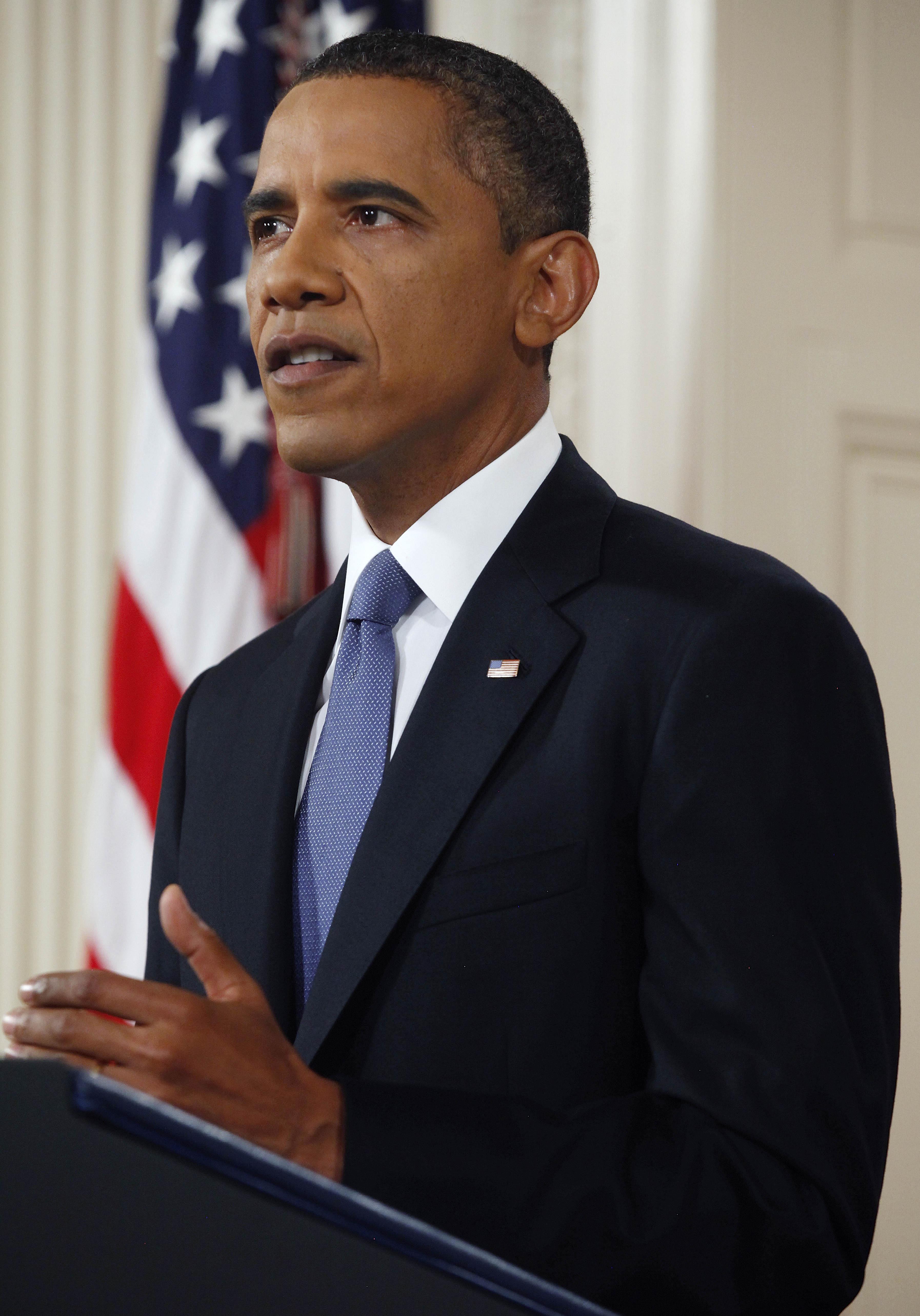By Christi Parsons and David S. Cloud
Tribune Washington Bureau
WASHINGTON - The U.S. will withdraw 10,000 troops from Afghanistan this year and bring another 23,000 home by the end of summer in 2012, President Barack Obama said, using a prime-time address to lay out for a war-weary public a pace of departure that is faster than military officials wanted.
In a speech from the White House, Obama said the allied forces have made enough progress in the war to merit such a drawdown of troops, even though he said there is hard work still to be done by the 68,000 military personnel that will remain after September 2012.
"We are starting this drawdown from a position of strength," Obama said from the East Room, where more than a month earlier he announced the killing of al-Qaida leader Osama bin Laden. "We've inflicted serious losses on the Taliban and taken a number of its strongholds. Along with our surge, our allies also increased their commitments, which helped stabilize more of the country."
The decision was endorsed by the president's team of advisers, including Defense Secretary Robert M. Gates and Secretary of State Hillary Rodham Clinton, but administration officials said the top Afghanistan commander, Gen. David H. Petraeus, preferred to see more troops staying in the near term.
The Pentagon had been hoping to limit the initial withdrawal to 3,000 to 4,000. But the killing of bin Laden by U.S. forces last month in Pakistan, combined with budget and political pressures, pushed Obama toward a steeper reduction, according to officials familiar with the internal debate.
"It's an important moment for him to be able to say to the American people, we are winding down the war in Iraq ... and now we have peaked in Afghanistan and are beginning to come down there as well," a senior administration official told reporters before the speech.
Obama himself acknowledged that unease, saying Americans can "take comfort in knowing that the tide of war is receding."
White House officials have emphasized in recent days that the president was not contemplating a change in strategy in Afghanistan. But analysts say a dramatic drawdown in troops within the coming year may necessitate such an adjustment, as the smaller number of military personnel still deployed are forced to focus more on fighting terrorism than on improving the conditions that give rise to insurgency.
In the past, dramatic withdrawal of troops has been accompanied by a spike in violence. Another open question is whether the mission in Afghanistan is in fact succeeding, as the White House says that it is, or if success to date will continue once there are fewer troops on the ground.
There were 38,000 U.S. troops in Afghanistan when Obama took office in January 2009, but in his first year in office he increased the number to almost 100,000.
As the tens of thousands of U.S. troops depart Afghanistan in the next year, the risk is that some areas of the south that have been cleared of insurgents will again fall under the control of Taliban fighters.
Many areas in Helmand and Kandahar provinces are more secure now, but that is largely because of the presence of U.S. forces, which have blanketed many areas that were once Taliban strongholds.
Administration officials argue that Afghan army and police units will increasingly be able to assume responsibility for security, with assistance from the remaining U.S. units. And they are hopeful that peace talks with Taliban leaders will lessen the strength of the insurgency over the next year.
But some U.S. commanders worry that pulling out troops will only encourage Taliban leaders to bide their time, as they have repeatedly during the nearly decade-long war. The risk that the south will again became a Taliban haven is heightened, these commanders say, because the U.S. intends to shift troops over the next year to eastern Afghanistan, where the insurgency remains potent.
A new poll from the Pew Research Center found that 56 percent of Americans want to remove all U.S. forces from Afghanistan as soon as possible, while just 39 percent prefer to wait until the situation has stabilized.
That includes more than 4 in 10 Republicans, and some candidates seeking to challenge Obama have taken notice. Jon Huntsman, Obama's former ambassador to China, said Wednesday he'd pursue a "more aggressive" drawdown.
"What we need now ... is a healthy dose of nation-building here at home," he told NBC News.
---
(Michael A. Memoli contributed to this report.)

